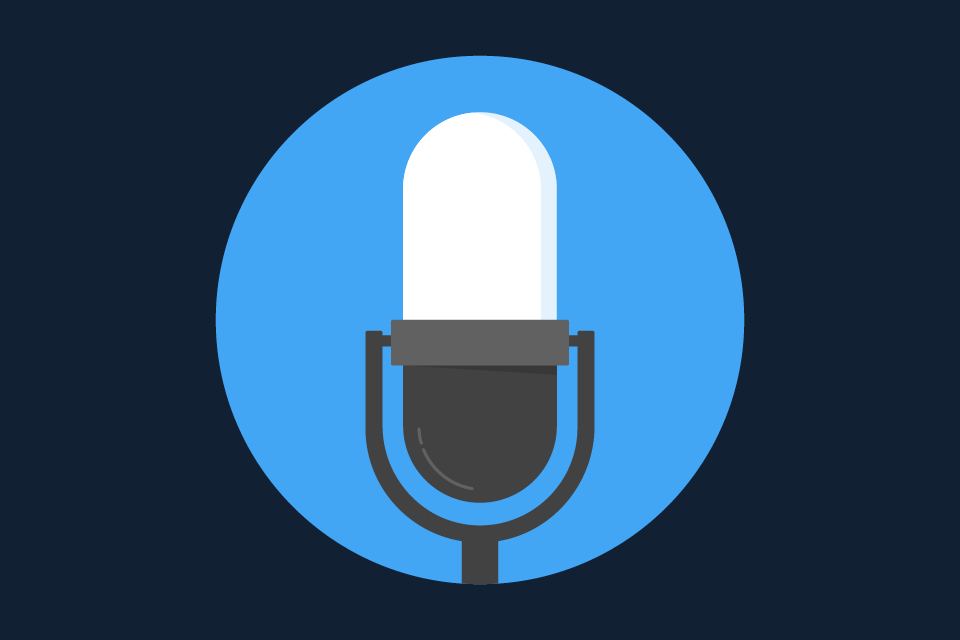In this episode of the AGA podcast, Small Talk, Big Topics, hosts Drs. Matthew Whitson and CS Tse are joined by Drs. Sandra Quezada and Carlos Diaz. Sandra is the associate dean for medical school admissions & assistant dean for academic and multicultural affairs at the University of Maryland. Carlos is a gastroenterology fellow at the University of Miami Hospital. They’re both leaders in the AGA Equity Project. Today they’re here to discuss their experience and insights related to equity and diversity and provide actionable tips to help you become a better doctor.
Sandra begins by sharing her definition of diversity, equity and inclusion. When looking at diversity, she takes into account heritage, race, ability, ethnicity, religion, gender and many other facets of a person’s being. Inclusion is having that diversity at every level of your organization. This is not just being asked to the party, Sandra says, it’s also being asked to dance, and invited to plan the event. Equity is defined by Sandra by its distinction from equality. Equality is seeking to give everyone the same opportunities; equity is targeting your support and access to identify and dismantle the barriers that have thwarted equality. Race is not so easily explained — and is not genetically determined, so it does not biologically explain the disparities we see in medicine. Sandra explains that it is rather a social and power construct. Carlos agrees, adding that he likes to focus on the difference between race and ethnicity, and that equity means having a stake in what happens in the world around you.
Scientifically, minority groups are more likely to die from COVID than their white counterparts. Carlos believes that education and preventative care is imperative to changing those statistics. Sandra agrees, explaining that this is part of a long history of oppression in medicine. In her own region in Baltimore, minority groups have been subject to redlining and lead paint studies. Viewing your patients holistically, and remembering things like their religious beliefs, access to preventative care and healthy food options is vitally important. Navigating health care disparities as a provider can be difficult, so Carlos recommends taking a thorough social history. This may take extra time, but can be transformative, especially during a pandemic. Sandra agrees that patient focus is important. She also recommends self-reflection by providers and intentionally working to make themselves more trustworthy to their patients and the community.
In addition to being providers, Sandra and Carlos are also both educators of the next generation of physicians. Matthew has them discuss what skills are important for these trainees. Sandra explains that self-reflection and confronting your biases is a start, along with encouraging open dialogue and communication. She also reminds educators that they are part of a system that has created some of these health care disparities, so they have to tackle it rather than talk about it as an abstract entity. Carlos recommends showing trainees that addressing that disparity makes them better providers. He also stresses that diversity and inclusion questions should be included on medical boards. What is put on the board automatically becomes important. It can be easy to blame these issues on health insurance issues. However Sandra says that, while important, this is not enough. Even in a universal health care system, disparities are still prevalent. Carlos explains the importance of asking the question, “why?” when you hear information. There is a comfort in doing things by the book – the way they’ve always been done – so both Carlos and Sandra encourage trainees to challenge things and get uncomfortable.
The AGA Equity Project works to increase and amplify diverse voices and leadership positions. The first year has been establishing goals and engaging committees; the next year will be revising clinical guidelines and patient education materials along with many more amped up projects.
As the episode ends, Matthew asks Sandra and Carlos to share the best career advice they’ve been given. Sandra says to have multiple mentors and then find your own path. Carlos says learn when to say no.
Learn more about the AGA Equity Project.
Learn more about Dr. Sandra Quezada.
Email Sandra at squezada@som.umaryland.edu and follow her on Twitter.
Learn more about Dr. Carlos Diaz.
Email Carlos at crd43@med.miami.edu and follow him on Twitter.
Follow Matthew on Twitter.
Follow Nina on Twitter.
Follow CS on Twitter.
Follow AGA on Twitter.
Email at agapodcast@gastro.org.












